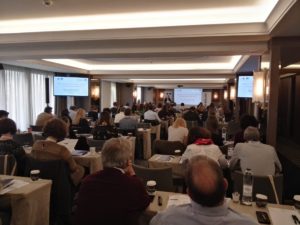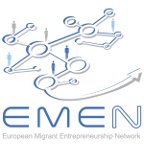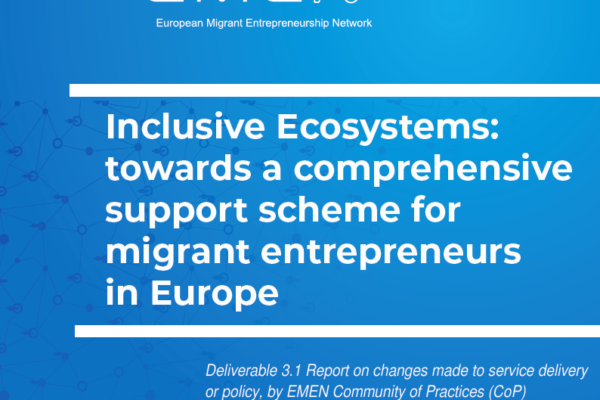Migration is not an emergency but a global fact. We need to move from emergency measures to long-term policies implemented through multi-level governance mechanisms. This was the message of a recent conference in Athens, backed up by a range of good practices.
Patricia Martinez Sáez, AEIDL (30/11/2018)[1]
It was not by accident that the Greek capital was chosen to hold the ESPON-Interact Joint Conference “Migration flows and integration policies – Data, evidence and best practices in the EU” on 22-23 November.
The country was the most popular migration route in 2015 (mainly used by asylum seekers from Afghanistan, Iraq and Syria) but declined sharply in importance when the EU-Turkey agreement entered into force in 2016.
Following the so-called crisis of 2015, European countries now need to tackle the medium to long-term challenge of integration. As Professor Bianchini from the University of Bologna noted, we need “Long-term policies for long-term issues, as migration is not an emergency but a global fact”.
Greece provides 60,000 places
As pointed out by Mr Ilias Miltiadis Klapas (Secretary General of the Ministry of Immigration Policy, Greece) during the opening of the Joint Conference, migration is not a new phenomenon in Greece. During the 90s and 80s Greece had to face the reception and further integration of large number of refugees, mainly from the Balkan Region as a result of civil war in the area. The country was unprepared to face this challenge since it was not a traditional ‘attractive’ country to migrate to. Despite dealing previously with a similar scenario, the experience and lessons learned were never consolidated. Hence there is no framework which would allow the country to be prepared in the event of a similar challenge in the future.
Notwithstanding the lack of readiness to address this issue in a context of severe economic downturn hitting the country, the whole of Greek society made great efforts to handle the crisis, using a mix of national, NGO and EU funding. Greece has now established 60,000 places in accommodation centres with access to healthcare and education, and with 12,000 children in the school system. While the reception crisis has passed, the new challenge for Greece and the EU is the integration of the refugees.
Links needed between levels
The key question now, not only for Greece but for all European countries and the EU as a whole, is how to put mechanisms in place for multi-level governance that can build a bridge between national governments – responsible for regulations such as the Greek ‘National Strategy for Integration of Third-Country Nationals (TCN)’ – and the flexibility of bottom-up approaches and concrete actions coming from local authorities and all the civil society organisations working on the ground.
While there are no ‘one size fits all’ solutions for integration, a multi-level and cross-sectoral approach, combining access to essential services such as housing, education, health and more actions for matching skills with job opportunities, is needed. Gathering robust evidence which would help policy-makers and society at large to understand the reasons behind migration, its actual distribution and impact was raised by several participants and speakers as an essential task.
In this context, Ms Laura Todaro (Principal Consultant at VVA, Belgium) presented the MIGRARE ESPON project which studies the ‘Impacts of Refugee Flows on Territorial Development in Europe’. The project covers the sharing of asylum seekers and refugees at the regional and urban level and how those flows change over time. It analyses how different European regions and cities located in arrival, transit and destination countries respond to refugees needs. The MIGRARE ESPON also assesses the skills and qualifications that the refugees have and how the influx of refugees impacts on the host countries´ regional and local labour markets and demographic imbalances. The project also examines the main challenges, good policy responses and best practices for the successful integration of refugees into local communities, societies and labour markets at the regional and local levels.
NGOs, researchers, activists, decision-makers and citizens should also join forces to bring a better understanding of migration, both forced and voluntary. Such debates provide grounds for evidence-based and sound practices to counter balance the rising ideological discourses that tend to obfuscate debates in the media and political arena nowadays.
A range of good practices
Ms Inmaculada Carda Isach, (DG for Social Inclusion, Valencia Region, Spain) wanted to stress the key role of civil society organisations as they give a sense of solidarity. In June 2018, Valencia welcomed the Aquarius boat with 629 refugees aboard. A reception service, including an interpreter for each refugee accompanied by an expert in asylum law, was deployed in six days thanks to public sector and civil society support. Specific attention was paid to unaccompanied minors (UAM) and women victims of trafficking.
In connection with the special needs of vulnerable groups within the new arrivals, Ms Roberta Lo Bianco (Coordinator of the Migration Unit, CESIE) presented the ‘Ragazzi Harraga’ project, working on the social inclusion of unaccompanied minors in Palermo. In 2016, 25,846 UAMs arrived in Italy, of whom 1,300 arrived in Palermo in Sicily. The project deals with the problem of fragmentation and often lack of coherence of efforts to support UAMs in Italy.
Ms Amalia Zepou (Vice-Mayor for Civil Society and Innovation of the City of Athens) highlighted during her presentation of the Urban Innovative Actions project ‘Curing the Limbo’, the need for space for experimentation, failure and redefinition until we are able to create an integration strategy which works in each particular context.
As a result of the economic crisis, Athens was experiencing a problem of long-term inactivity not only for the recently arrived refugee population, but also for its own local unemployed people. These two groups needed to be reactivated and reconnected with the active native population. This initiative, which includes five partners from Athens, aims to ’reactivate’ empty buildings and overturn the established inertia offering a positive impact to the city.
The project then will develop a ‘win-win’ situation for housing and inactivity for both natives and refugees. Refugees receive affordable living spaces from the city’s available housing stock and in return, they work for the public benefit, supporting the needs of the local community and participating in citizen-led activities. This both improves the quality of life in Athenian neighbourhoods and also gives the refugees the opportunity to improve their skills and become an active member of local society, which is essential to ensuring social cohesion and avoiding segregation.
The key challenges of the high increase in migration and refugees in 2015 have already been discussed. Now it is time to absorb the demand by implementing schemes with more focus on directing migrants to regions with more job opportunities, paying more attention to the needs of vulnerable groups such as unaccompanied minors, exchanging new ideas that can trigger innovation solutions between cities and countries, ensuring multilevel and cross-sectoral collaboration, collecting accurate data and hence, finding the most appropriate way of communicating with the general public. This would help ensure that populist movements do not win the media battle by showcasing not only negative perceptions of migration but also the benefits that this phenomenon can bring to EU society
More information:
[1] Patricia Martinez Sáez is a Project Executive with the Social Innovation Community (SIC) and the European Migrant Entrepreneur Network (EMEN) projects, both coordinated by AEIDL..




